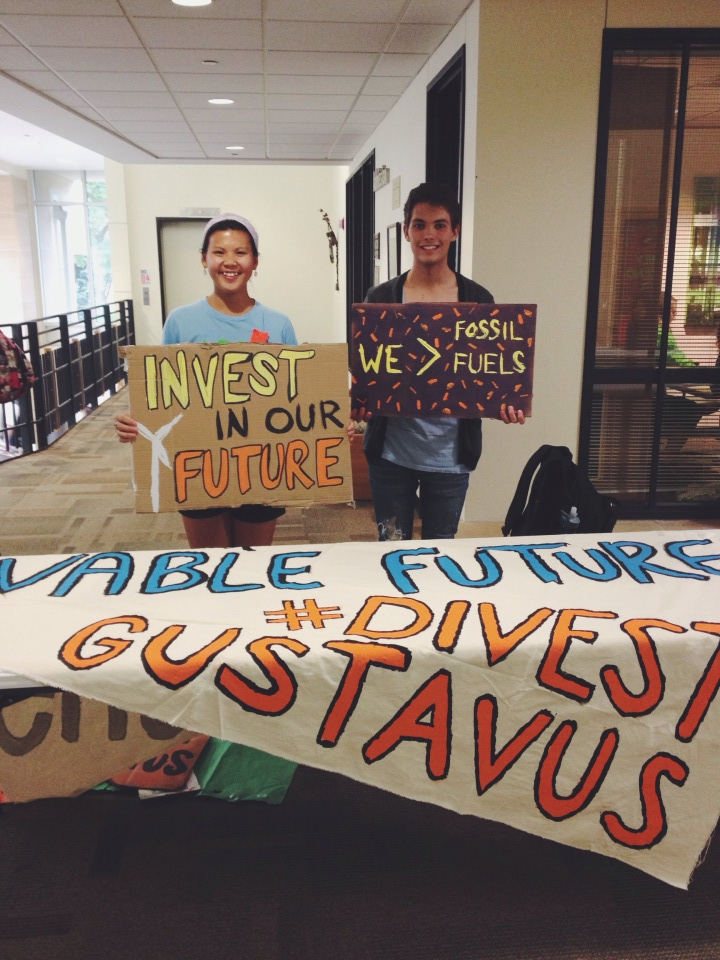The UN’s recent decision to publicly back fossil fuel divestment is highly controversial.
Many nations inside of the UN rely heavily on coal, oil and gas to support their economies. The backing of this divestment campaign attempts to persuade investors to sell their shares of fossil fuel company assets.
The UN framework convention on climate change spokesman was quoted in a recent Guardian article stating,
“We support divestment as it sends a signal to companies, especially coal companies, that the age of ‘burn what you like when you like’ cannot continue,” said Nick Nuttall.
The goal of this global divestment campaign has not been to bankrupt fossil fuel companies, but instead to incentivize the fossil fuel industry in order to create cleaner and more sustainable energy sources.
When asked for her take on the subject, Senior Nicole Ektnitphong was enthusiastic in her response.
“I don’t see any implications of the UN backing fossil fuel divestment because divestment from fossil fuels is more of a symbolic statement in how we are going to look at energy and how we are going to look at where we stand in the future in terms of finding more sustainable ways of providing energy,” Ektnitphong said.
In recent years, there have been numerous colleges and institutions across the country that have personified divestment, the most notable being Harvard.
Greens President Tia Gustafson vocalized her support for the movement and challenged Gustavus to follow suit.
“As the Greens president, I would be 100 percent behind Gustavus if they attempted to divest from fossil fuels. The impact this would have in terms of our future sustainability and the overall message it would send to incoming students and young alumni would show that Gustavus is moving in the right direction,” Gustafson said.
The lack of electricity is still a major problem for many people around the world.
The fossil fuel industries see great risk in divestment for the millions of people that do not have access to such necessities.
Ektnitphong articulated her rational view on the topic of sustainability and discussed how Gustavus can fit into a positive solution for all.
“The impact this would have in terms of our future sustainability and the overall message it would send to incoming students and young alumni would show that Gustavus is moving in the right direction.”—Tia Gustafson
“It sends a powerful message to the international community that we are reconciling an energy question and the future sustainability of our planet. This can be beneficial for Gustavus if we push forward with our own divestment efforts, while also looking at ways we can contribute to the international community in terms of thinking critically about energy consumption and sustainability,” Ektnitphong said.
As of last year, Gustavus had only about two percent of our endowment invested in fossil fuels. This is consistent with the averages among most colleges and universities across the country.
Last year, ‘Divest Gustavus’ orchestrated a demonstration citing the importance of fossil fuel divestment. They centered their discussion on the environmental impacts, as well as the business plans of fossil fuel companies.
Their main focus was to persuade Gustavus into freezing new investments in this sector and also to divest currently owned fossil fuel assets.
With support from an international organization like the UN, it will be interesting to see how divestment movements will respond.
In recent history the support from the UN doesn’t necessarily hold as much weight as it would like.
Tia Gustafson echoed these sentiments about the UN and also tied Gustavus into the conversation.
“I think it’s great that the UN backed fossil fuel divestment, but at the same time they don’t have as strong of a voice as they perceive themselves to have. Ultimately, it’s about what’s best for the environment and then what’s best for Gustavus as a whole.” Gustafson said.
The imminent issues of climate change are apparent worldwide and there will still be constant debate revolving around fossil fuel divestment.
These conversations will continue to persist, and it is important to understand the moral, ethical and financial implications of the presented problem.
Time will only tell if the advice from the UN will be taken seriously and how this global conflict will seek a resolution.
-Mark Siatta
